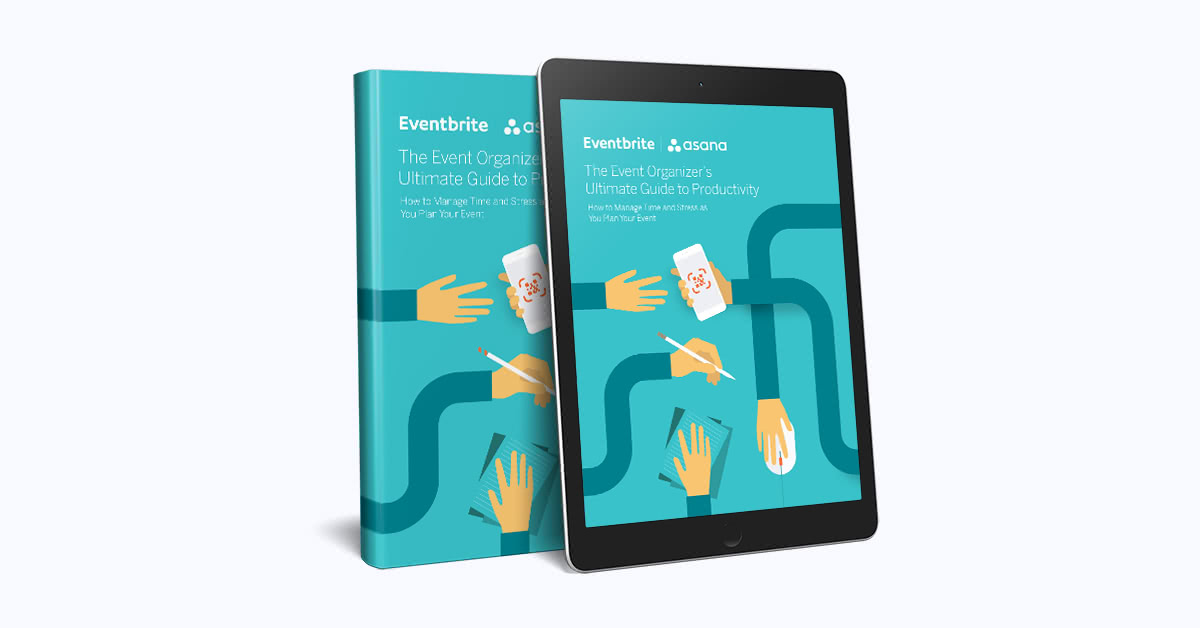According to research in the UK, a career as an event coordinator is the fifth most stressful job. The list ranks event planners alongside military personnel, firemen, and airline pilots — all of which are jobs that put the employee’s life at risk. So what is it about event planning that people find equally stressful?
To start, event planning means a copious number of tasks to complete, strict time frames, tight budgets, and creating something out of thin air that has to please a large number of people. It’s a risky business with a lot of unknowns. You’ll never know until the day whether enough people will even show up. There’s a constant threat of unknown disasters from weather to cancelled performances. While hardly life threatening, it’s more than enough to keep your stress levels buzzing.
Free Download : The Event Planner’s Ultimate Productivity Handbook
To combat the jitters, we have put together some top tips for lowering event planning stress to help you to create more successful, anxiety free events in the future.
Reducing Event Planning Stress Tip # 1: Take enough time for yourself
After a while, organising an event can send you a bit stir-crazy and blunt your sense of reality, so it’s advisable to take regular breaks and switch off completely. If that means you have to schedule it — do it! Book in time to unwind be it a coffee with friends or taking the dog for a walk. Don’t keep putting it off. Making yourself a priority will help your mood and ultimately your work.
Don’t forget to plan a day off shortly after your event is over to wind down properly before tackling your next project.
Reducing Event Planning Stress Tip #2: Create an action plan
By creating an action plan with realistic timelines and goals, you’ll be able to sleep better at night knowing that everything should work out just fine. Stress often comes from the unknown or the perceived unmanageability of an event, but providing you break your tasks down into bite size chunks and stick to it, this should reduce a lot of the worry that follows.
Sometimes looking too far ahead and thinking ‘how am I going to get through this workload?’ can create problems in your mind and demotivate you. Go a step further than simply slicing jobs down into smaller actions – look at what you can realistically accomplish in a day or week rather than the entire project. Block out time to complete those tasks and switch off distractions. If you can’t get it done in your working hours, seek assistance or prioritise and focus only on things that can’t be postponed. This way you won’t have too much work hanging over your head, stopping you from sleeping.
Reducing Event Planning Stress Tip #3: Have a backup plan
Sometimes things go wrong. Public speakers can drop out, people will change their mind, and venues could cancel last minute. Always ensure you have a backup option for every avenue. Make sure you have other public speaking/entertainment options and you’re not relying on one particular sponsor. It’s equally important to have a backup venue option or know who you could call on if an incident arose, particularly if your event is weather reliant.
Marketing can be stressful too, and you may find your strategy or advertising options don’t deliver. Creating backup marketing options in case your ticket sales or invitations aren’t coming in can help you to prepare for the worst possible outcomes. Being prepared will reduce your levels of stress as you’ll know that you can overcome everything with ease.
Reducing Event Planning Stress Tip #4: Give yourself realistic expectations
You may have grand expectations of your events based on previous experiences, but the best way to ensure your event isn’t a gamble is to create realistic expectations for what you want to achieve. Give yourself plenty of time to make those goals happen. It’s disheartening to lower your own standards of what you expect from yourself or your event, so make sure you stay realistic and push the boundaries upwards for every event you do to achieve your long term goals. Celebrate the wins when they come but don’t be too hard on yourself if things aren’t perfect – it’s likely that you’re the only one that felt this way!
Reducing Event Planning Stress Tip #5: Keep a healthy lifestyle
Anxiety can come from not looking after yourself, or living in an unhealthy way. Often our perceived stress relievers like chocolate, fast food, excess caffeine, alcohol or smoking are merely contributing to our lack of concentration and sleep. Getting your health under control by making time for exercise and proper meals is more likely to have an impact on how you feel.
Many event organisers swear by yoga, meditation, or simple mindfulness activities (e.g. going for a walk or colouring in) to take their focus away from the stresses of work and regain focus.
If you get these areas under control, you’ll find that you’ll be less susceptible to stress and you’ll be able to manage your workload much better.
Conquering your next event
Unfortunately there’s no denying that event planning is a stressful career path, particularly when you’re doing it alone or with few resources, but you can change how you handle that stress by being fully prepared, taking breaks, setting realistic expectations and creating a healthier life.
Now that you’ve finished reading this article — get out for some fresh air, believe in your contingency planning, enjoy some sleep and get both your mind and event in a happier place!
Want some simple tools to help you be a more efficient event planner? Download The Event Planner’s Ultimate Productivity Handbook.





